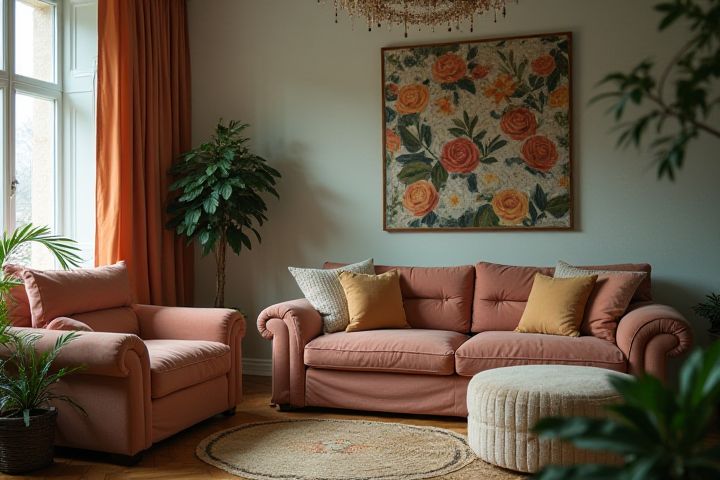
Renting out part of your house can be a lucrative opportunity that not only supplements your income but also maximizes the use of your property. Consider the legal aspects, such as local zoning laws and any necessary permits, to ensure compliance with regulations. Evaluate the potential rental market in your area, including average rental prices and tenant demand, to set a competitive rate. You might also want to furnish the space to attract prospective tenants or enhance appeal through minor renovations. Engaging in a rental agreement provides clear terms of tenancy, safeguarding both your rights and those of your tenant.
Can I Rent Out Part Of My House
Zoning laws and regulations
Zoning laws dictate how properties can be used, affecting your ability to rent out part of your house. Typically, residential zones allow for single-family homes, while some may permit multi-family units or accessory dwelling units (ADUs), depending on local regulations. It's crucial to check with your city or county government for specific regulations, as they may have occupancy limits, required permits, or restrictions on short-term rentals. Non-compliance can lead to fines or legal issues, so understanding your area's zoning ordinances is essential for a successful rental endeavor.
Local council rules
You can rent out part of your house, but first, check your local council regulations regarding residential rentals. Many councils have specific guidelines detailing requirements for licensing, safety standards, and property modifications. Ensure compliance with zoning laws, which may restrict rental practices in residential areas. It's also advisable to familiarize yourself with any tenant rights and obligations to maintain a positive rental experience.
Homeowner association restrictions
When considering renting out part of your house, it's essential to review the specific restrictions set by your Homeowners Association (HOA). Many HOAs have explicit rules regarding rental properties, which can include limitations on the percentage of units allowed to be rented, the duration of rentals, and even tenant screening requirements. Violating HOA regulations can lead to fines or legal action, so it is crucial to ensure compliance prior to listing your space for rent. Always refer to your HOA's governing documents, such as bylaws and covenants, for detailed information on rental policies.
Mortgage and lease agreements
Renting out part of your house can provide a valuable source of supplemental income, but it's essential to review your mortgage agreement. Many lenders have specific clauses that may restrict subletting or renting portions of your property without prior consent. Additionally, your lease agreement--if applicable--may outline terms related to occupancy and rental arrangements. Before proceeding, consult legal advice to ensure compliance with local regulations and to protect your rights as a landlord and homeowner.
Insurance coverage
Renting out part of your house can impact your insurance coverage significantly. It's crucial to inform your homeowners insurance provider about your plan to ensure you have the appropriate rental property insurance or a rental endorsement. Standard homeowners insurance typically does not cover damages or liabilities associated with rental activities, leaving you vulnerable. Consider obtaining landlord insurance, which can protect against potential risks such as tenant-related damages, legal liability, and loss of rental income.
Tax implications
Renting out part of your house can offer additional income but comes with significant tax implications. You may need to report rental income on your tax return, which includes all rent received, and you can also deduct related expenses such as mortgage interest, property taxes, repairs, and maintenance. If you rent out a portion of your personal residence, you can apportion these deductions based on the rental space percentage compared to your entire home. Be mindful of the distinction between personal use and rental use, as this can affect depreciation and the ability to claim losses.
Tenant screening process
The tenant screening process is crucial when renting out part of your house, as it helps ensure that you find responsible and reliable occupants. Start by setting clear criteria for potential tenants, including income verification, credit checks, and rental history. Conduct in-depth interviews to gauge their compatibility with your living environment, and consider using written applications to document their information formally. By prioritizing thorough screening, you can create a harmonious rental experience for both you and your tenant.
Lease agreement terms
When considering renting out part of your house, it's crucial to specify the lease agreement terms clearly to protect both your rights and those of your tenant. The lease should outline the rental amount, payment due date, security deposit requirements, and duration of the lease, ensuring both parties understand their commitments. Include terms regarding utilities, maintenance responsibilities, and any house rules you want to enforce, creating a solid foundation for a harmonious living environment. Also, ensure compliance with local laws and regulations regarding rental properties to avoid potential legal issues.
Safety and maintenance standards
Renting out part of your house can be a rewarding venture, but prioritizing safety and maintenance standards is crucial for both your peace of mind and your tenants' well-being. Ensure that smoke detectors and carbon monoxide alarms are installed and functioning correctly, as these devices are essential for early detection of hazards. Regularly inspect and maintain plumbing, electrical systems, and heating equipment to prevent potential failures or safety issues. By adhering to local housing codes and performing routine maintenance, you create a secure environment that attracts responsible renters and protects your investment.
Privacy concerns
When renting out part of your house, privacy concerns should be a top priority for both you and your potential tenants. Ensuring that shared spaces, like kitchens and bathrooms, are clearly defined can help maintain personal boundaries. Implementing secure locks and soundproofing measures can minimize privacy invasions, making the living environment more comfortable. Verify that your lease agreement includes clauses addressing privacy rights and expectations to formally protect everyone's interests.
